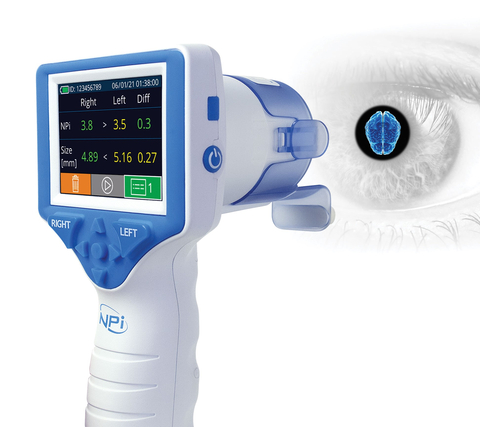IRVINE, Calif.– A newly published clinical study shows that NeurOptics’ Automated Pupillometry and the Neurological Pupil index™ (NPi®) remain unaffected by clinical intoxication, and therefore can be used for rapidly screening emergency room patients for brain injury or neurological injuries regardless of intoxicated state.
The study, published in The Journal of the American College of Emergency Physicians, was conducted in the Emergency Departments of the Hospital of the University of Pennsylvania and Penn Presbyterian Medical Center (PPMC) in Philadelphia, where 119 patients with confirmed clinical intoxication from ethanol, opioids, or other drugs of abuse were enrolled. The study examined the effect of different intoxicant drug classes on pupillometry metrics and assessed the potential benefit of pupillometry as a tool in the rapid assessment of clinically intoxicated patients in the Emergency Department (ED).
The results showed that although clinical intoxication did affect pupil size and other individual metrics of the pupillary light reflex, no statistical differences in the NPi were noted between those with intoxication versus control patients. NPi remained unaffected by clinical intoxication and therefore can potentially be used for ED patient evaluation without risk of confounding by key intoxicants of abuse.
“With approximately 95,000 alcohol-related fatalities annually and over 70,000 opioid-related drug overdose deaths in 2021 alone, emergency medical service agencies and emergency departments face unique challenges associated with the rapid assessment, treatment, and monitoring for intoxication,” said Benjamin S. Abella, M.D., Department of Emergency Medicine at the Hospital of the University of Pennsylvania, and lead study investigator. “This is the first study of intoxicated patients in the Emergency Department setting to clearly demonstrate that the NPi is a reliable tool for assessing and triaging patients, and a useful indicator of neurologic function irrespective of intoxication, including those attributed to opioids.”
NeurOptics’ automated pupillometer has emerged as an important technology that provides a reliable measurement of pupil size and reactivity, expressed as the Neurological Pupil index (NPi). NPi values range from 0 to 4.9, with scores under 3 considered abnormal. The NPi Pupillometer is the only monitoring device that reliably and accurately confirms if pupils are reacting normally or abnormally during the triage of Altered Mental Status (AMS) patients in the ED, supporting neurological examination in adult and pediatric patients across a broad spectrum of diagnoses, including post-cardiac arrest, traumatic brain injury, stroke, seizure, or other neurological events.


